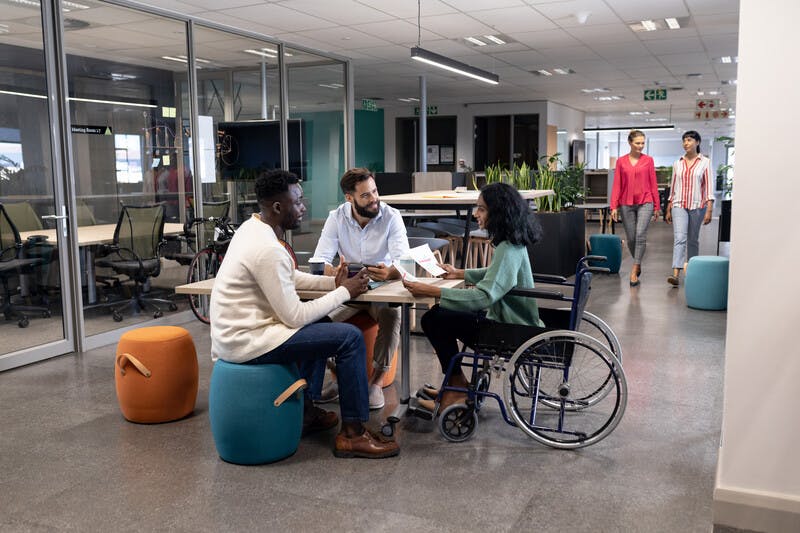At ISS, we’ve been considering how evolving ways of working are closely linked to our quest to become the ‘company of belonging’. While ‘Inclusion’ recognises that we must go further than simply hiring diverse employees: we need to create a ‘safe to be you’ environment, where those in the business are free to be their authentic selves. ‘Belonging’ takes this a step further. It means that you, as an employee, know your voice will be heard, welcomed and championed by others in the business. You’re empowered to speak up.
This includes efforts to support colleagues to work remotely—and with 30,000 ISS employees across the UK and Ireland, some initiatives do have to be implemented remotely. But in-person contact with colleagues can be crucial in safeguarding mental health and wellbeing. Physical distance can lead to psychological distance, which is one reason why the return to the office is so important. It’s easier to see the changes in somebody’s mental wellbeing when in the office; it’s more difficult when viewing them as a snapshot on a computer screen.
Many people I know plan ahead for their days in the office—ensuring that those are the times without back-to-back meetings when they can walk around and rekindle connections with people they haven’t seen for a while. It’s that sense of connection, collaboration and networking that you just don’t get remotely. When you see people in a two-dimensional format, you might not get a full sense of what they are actually like. So, when it comes to ‘bringing your whole self to work’, that extra dimension can let colleagues know who you are.
Alongside campaigns around race, gender and ability, we’ve created Employee Resource Groups (ERGs) to help foster an understanding between communities and encourage allyship. In-person contact can optimise ERGs too—although these also benefit from the breadth of perspectives that remote access can bring. These are designed to share employees’ voices, which is crucial to business success. If you're not asking all your colleagues the right questions, you're not going to understand what challenges exist in your business.
